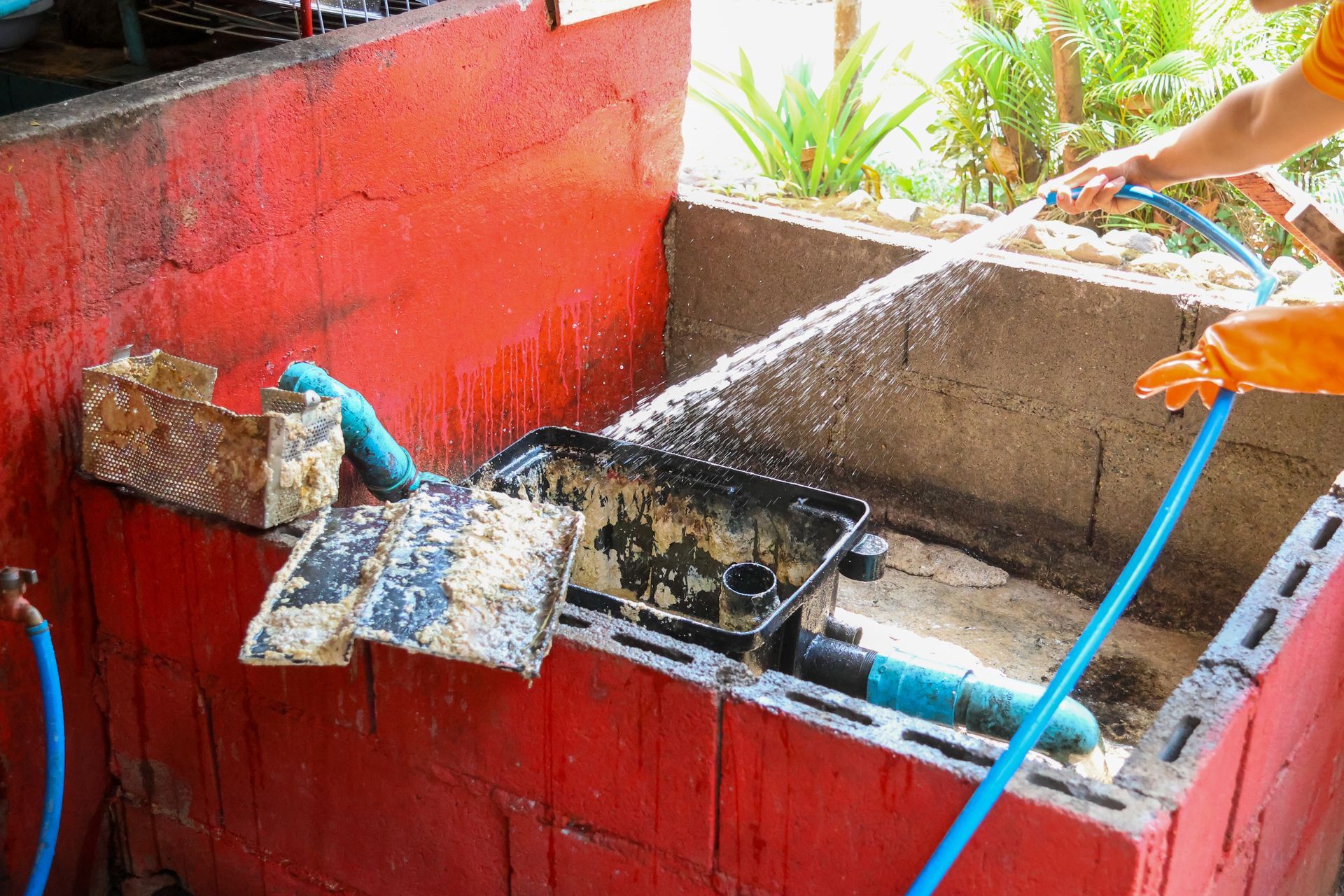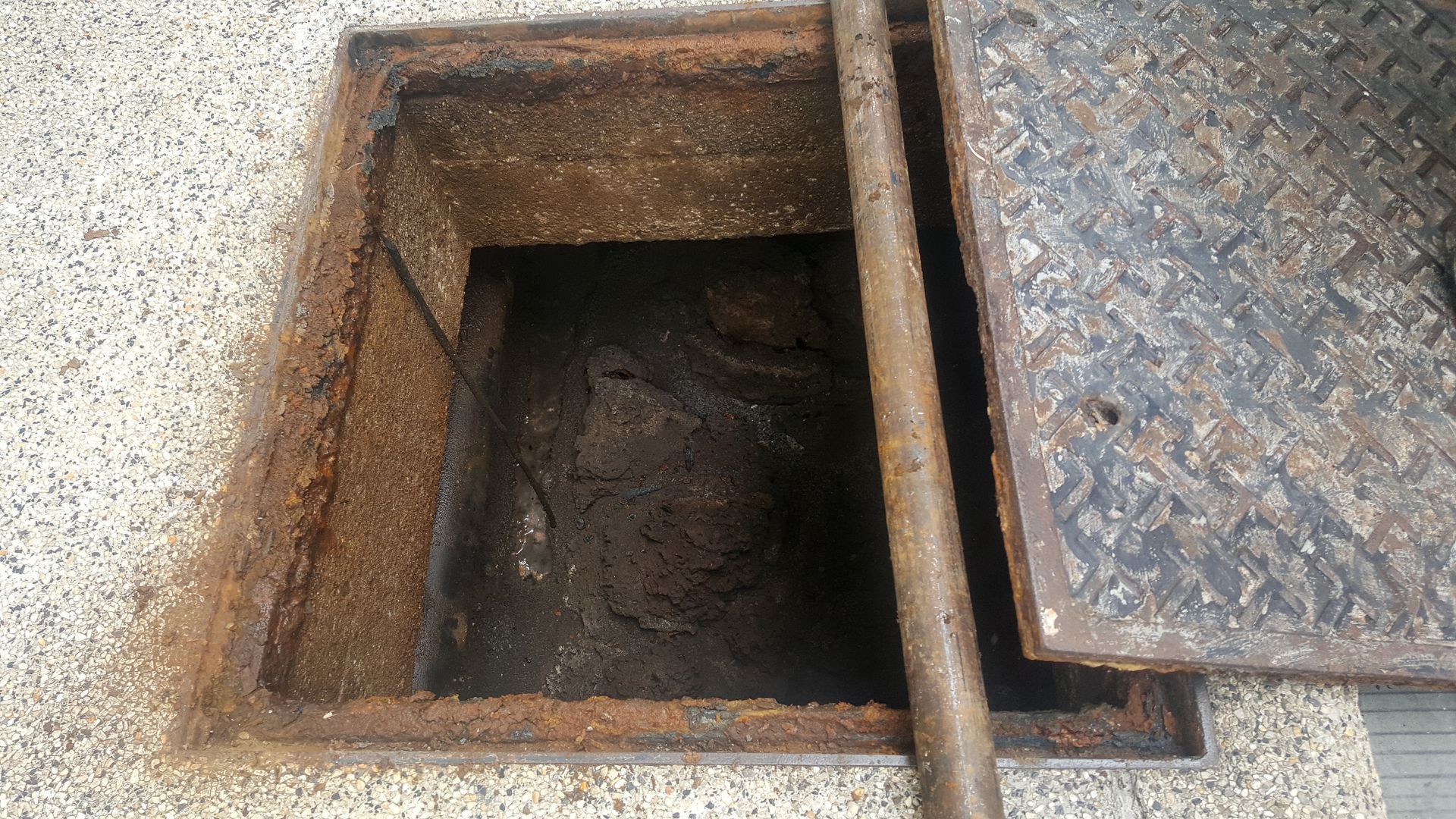Signs Your Grease Trap Needs Immediate Attention

Grease traps are vital for preventing fats, oils and grease (FOG) from entering sewers, but they require regular cleaning and maintenance to function effectively. Failure to maintain adequate cleaning schedules can lead to costly repairs, fines or even catastrophic failures.
Trying to inspect your grease trap yourself isn’t always safe or easy. Accurately diagnosing issues or measuring FOG accumulation requires proper tools and expertise. Food service business owners may struggle to identify more complex issues, such as blockages in the grease trap’s inlet.
However, there are some plumbing symptoms that may indicate there is a problem with your grease trap, or potentially your business’s sewer connection.
Slow Drainage
Although there can potentially be other reasons food service businesses experience slow drainage in sinks, dishwashers or floor drains, grease trap problems are one potential culprit. If water is draining slower than usual, it could be a sign that the grease trap is clogged with FOG and solid waste.
Over time, accumulated grease and food particles reduce the trap's capacity, making it harder for water to flow freely. Among the causes of clogs, this is one of the most serious because overflowing grease traps can lead to costly and unsanitary issues.
Solutions for Slow Drainage
You should call a plumber first. In many cases slow drainage is caused by blockages in pipes rather than grease traps. An experienced plumber should be able to ascertain where the partial blockage is occurring or determine if your grease trap is the likely culprit.
Regular cleaning by a dependable provider can help ensure your grease trap doesn’t contribute to slow drainage.
Foul Odors
Grease traps that are overdue for cleaning start to emit unpleasant odors. These smells are caused by decomposing food waste, grease buildup and bacteria thriving in the trap.
Foul odors can drive away customers and create a poor impression of your establishment. Persistent odors may indicate more severe issues, such as waste accumulating beyond the trap's capacity.
Solutions for Foul Odors
Proper cleaning and FOG disposal is the most dependable and easiest way to eliminate grease trap odors in and around your business. Establishing a cleaning schedule with a reputable grease trap cleaning company is the best way to reduce the frequency and severity of foul grease trap odors.
Frequent Clogs
Frequent clogs in sinks or drains can result from various causes, including an overwhelmed or poorly maintained grease trap. Older plumbing systems with corroded or narrow pipes tend to clog more frequently, especially if employees don’t exercise good material disposal discipline.
Items like food scraps, grease, wet wipes, paper towels and hygiene products are flushed or rinsed down drains that aren’t designed to handle them. These materials accumulate over time, restricting water flow and causing blockages.
If a grease trap isn’t well cared for, it’s also possible for FOG that should be contained in the trap to escape into the plumbing system, where it solidifies and causes blockages.
Solutions for Frequent Clogs
Training employees in proper disposal practices is one of the best ways to prevent frequent clogs. For clogs related to FOG, it may indicate it’s time to increase grease trap cleaning frequency or maintenance providers.
Grease Overflow or Backups
When the grease trap reaches capacity, FOG and wastewater can back up into sinks, drains, or even the grease trap itself. This is usually a sign that the trap has not been cleaned frequently enough.
Backups can create a significant sanitation issue, with grease and waste contaminating workspaces. Overflow can lead to hefty fines and possible closure by health inspectors.
What to Do After a Grease Trap Overflow or Backup
Schedule emergency cleaning and reassess your grease trap maintenance schedule to prevent future issues.
Unusual Noises From Drains
Gurgling sounds or other unusual noises from drains can signal blockages caused by grease buildup. As grease solidifies in pipes, it obstructs the normal flow of wastewater, creating air pockets.
Persistent drain noises can signal larger plumbing problems, including full-scale blockages or backups. Ignoring these sounds may result in costly emergency repairs.
What to Do if Your Hear Unusual Noises From Your Drains
Address the issue proactively by having the grease trap cleaned and consider calling a plumber to check your pipes for blockages.
Why These Issues Happen…
Grease traps are designed to capture FOG and prevent it from reaching your plumbing and local sewer system. Their efficiency, however, depends on consistent maintenance. Over time, grease accumulates and hardens, reducing the trap’s capacity and functionality. Inadequate cleaning or improper use—such as pouring hot grease down drains—accelerates these problems.
High-Quality Grease Trap Cleaning and Preventative Maintenance in Atlanta
If you’ve noticed slow drainage, foul odors or other issues, don’t wait until the problem escalates. Contact Southern Green Industries today at (404) 419-6887 for professional grease trap cleaning and maintenance services. We’ll ensure your grease traps remain compliant and your business stays operational.
Recent Blog Posts
Contact us Today for a FREE Quote
We are committed to making grease trap cleaning and fryer oil recycling as clean and easy as possible. If you’d like to learn more about our services or get a quote, give us a call at (404) 419-6887.



